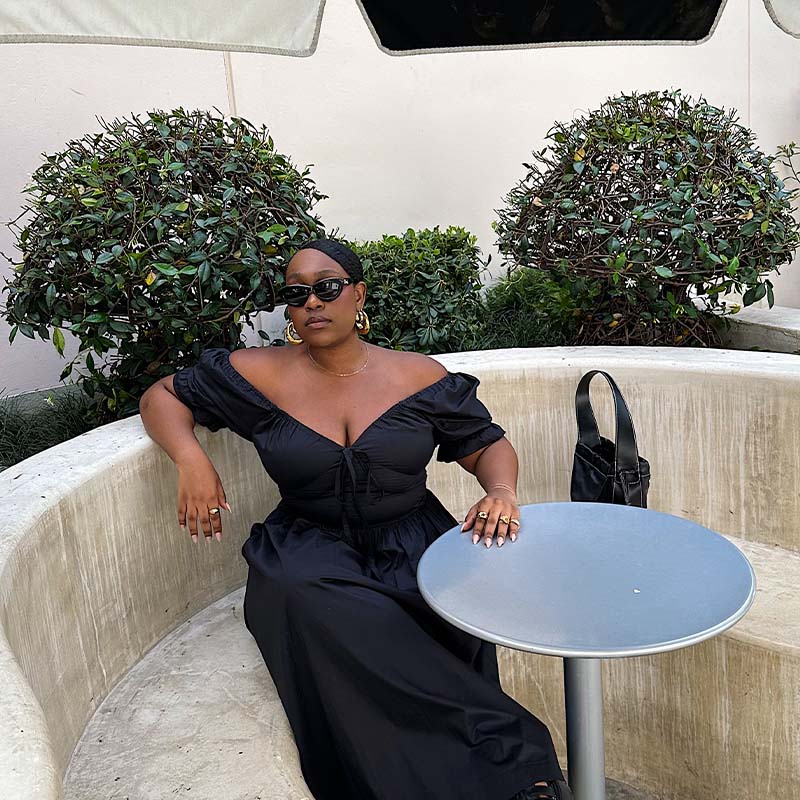
For rosacea sufferers, the only thing more frustrating than a flare-up is a flare-up with seemingly no root cause. Triggers drastically differ from person-to-person, so treating this condition and finding the right skincare products can be challenging.
As a refresher, rosacea is an inflammatory skin condition characterized by redness, dry skin, visible blood vessels, and irritating bumps resembling pimples. Second only to acne and eczema, rosacea is one of the most common skincare conditions worldwide—it currently affects an estimated 16 million American adults.
While rosacea can affect people of all ages, genders, and skin types, patient surveys indicate that fair-skinned women over the age of 30 are considered to be the most at risk. This chronic but treatable condition also has genetic roots—research has found that rosacea is especially prevalent in people of northern or Eastern European descent.

Considering the fickle nature of this condition, we tapped board-certified dermatologist and dermatologic surgeon Sameer Bashey, MD, FAAD, for his expertise.
"Different ingredients trigger flare-ups and responses in different patients," he tells Who What Wear. How do you get to the bottom of things? "Note what you ate, what you did, and what products you used [when one occurs]," Bashey advises. "Knowing what triggers your flare-ups can help you avoid the ingredients, foods, or activities that exacerbate your rosacea symptoms."
As for skincare products? "I always recommend doing a test on a small section of skin on the face or neck to see how you respond to the formulation," he explains. "If a reaction occurs, take note of the product and its ingredients, and consult your dermatologist. Anything from topical treatments to oral medications to laser therapy can be utilized, depending on the specifics of each patient's rosacea case."
Keep reading for the common rosacea triggers to avoid, as well as Bashey's ingredient and product recommendations.

We know it can be upsetting to hear, but as skin is your body's largest organ, the foods you consume can have a big effect on your skin's health.
"Studies and surveys have shown that there are several common triggers for patients suffering from rosacea, such as spicy foods and alcohol," Bashey explains. "Another common culprit is hot foods, since high temperatures dilate blood vessels and open them to increased blood flow, which is how flushing occurs."
Identifying your dietary triggers takes a bit of effort up front. But once you've done the legwork, you can cut these foods out of your diet or at least be able to anticipate a flare-up if you choose to indulge.

Excessive sun exposure is bad for your skin, regardless of whether or not you have a condition. "[But] harmful rays from prolonged sun exposure can actually trigger a flare up in rosacea patients," cautions Bashey. He recommends wearing a daily sunscreen that contains SPF 30 or higher year-round.

Astringents are commonly used to remove excess oil from the skin, ideally after removing makeup and cleansing, explains Bashey. But for people with rosacea, powerful astringents—specifically those that contain alcohol—can do more harm than good. "With rosacea patients, removing excess oil is sometimes beneficial," he explains. "But overdoing it can irritate the skin, dry it out, and trigger a flare-up."

While exfoliants can help unclog pores, even skin tone, and treat acne, strong exfoliants can irritate rosacea-prone skin. "By overusing physical exfoliants or chemical ones (such as alpha-hydroxy acids and beta-hydroxy acids), you can overexfoliate your skin, which leads to sensitivity," he explains.
Adds the doctor, "[Exfoliating] also inhibits your skin from retaining moisture, since overexfoliation compromises your skin’s barrier function. One of those primary functions is retaining hydration." Generally speaking, products that can potentially dry out or irritate the skin are not a rosacea patient's friend.

Since dry skin is a hallmark of rosacea, hydrating moisturizers and serums are some of the most important skincare products for patients.
"You'll want to use products that contain humectants, which are compounds that attract water molecules," says Bashey. "A humectant pulls moisture from the dermis (the second layer of skin) into the epidermis (the top, visible layer)." Hyaluronic acid, glycerin, urea, and AHAs are all well-known humectants. Secondly, products containing ceramides are incredibly hydrating and help keep the skin from drying out, he adds.
ZO® Skin Health's Rozatrol tops Bashey's list of rosacea-soothing skincare products. "It's a powerful treatment that contains hydrators, antioxidants, and mild exfoliation properties to target the typical symptoms of rosacea," he notes. "The product's powerful plant stem-cell complex, ZO-RRS2®, soothes and protects the skin."


Because antioxidants protect your skin from free-radical and oxidative damage, antioxidant-rich skincare products can help soothe rosacea-prone skin and prevent flare-ups. "Products with antioxidants, such as vitamins C, E and retinols (vitamin A), protect the skin and encourage its natural ability to heal itself," explains Bashey. He recommends using a mild antioxidant serum to protect the skin from free radical–induced damage while preventing fine lines and wrinkles.



Although rosacea patients should generally avoid harsh products and ingredients, the right chemical exfoliant can work wonders. "Chemical exfoliants should be used sparingly," Bashey cautions. "But if used correctly, they can benefit rosacea patients and their condition overall."
Board-certified dermatologist Ashley Magovern, MD, echoes this sentiment. "I prefer chemical exfoliants for rosacea-prone skin types over the mechanical scrubs," she told Dermstore. "Try products with mandelic, lactic, or glycolic acid."
No matter what product you try, she recommends going low and slow: "It's important that you do not irritate or overexfoliate the skin. The long-term goal is to improve your skin over time."






from Who What Wear https://ift.tt/2Si9BVD







No comments:
Post a Comment